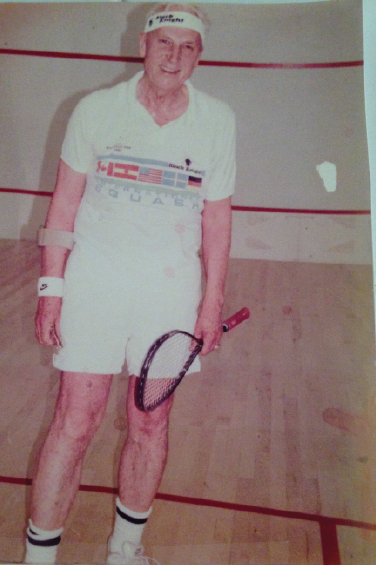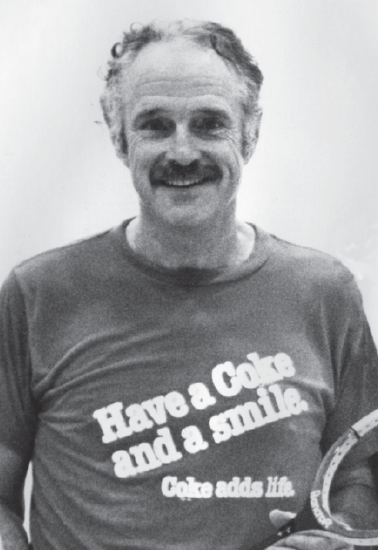 WALTER FITCH PETTIT
WALTER FITCH PETTIT
1918-2014
Walter Fitch Pettit, one of the pioneers of squash on the West Coast, died in June 2014. He was ninety-six. Pettit grew up in Princeton, New Jersey, and was a member of the Princeton class of 1940. Pettit played number four on the Princeton varsity; in the semis of the 1940 intercollegiates he managed to beat Princeton No. 1 and defending intercollegiate champion Stan Pearson, Jr. 15-12 in the fifth to reach the finals. Living in San Francisco since 1945, Pettit helped sustain and develop squash out west. He annually played in the Pacific Coast Championships (reaching the final twice), and he captained the Pacific Coast sides that famously won the national team titles in 1954 in Pittsburgh and 1957 in New York. (The 1957 team, with him at number one, won three straight 3-2 matches). Both victories had a galvanic effect on the game nationally. In December 2013 Pettit was inducted into the Olympic Club Hall of Fame.
G. DOUGLAS TALBOTT
1924-2014
 G. Douglas Talbott died on October 18, 2014. He had just celebrated his ninetieth birthday two weeks earlier. He was the father of the famous Talbott squash clan that includes sons Mark Talbott and Dave Talbott and daughter Polly Talbott’s husband Ming Tsai. Talbott loved playing squash. He won the Dayton city championships and Ohio state veterans singles and doubles titles and for many years was a nationally ranked masters player. He served on the board of US Squash in the 1960s and, after moving to Atlanta, helped found the Southeastern SRA. In 2002 he was the first recipient of the Dayton Squash Racquets Association Lifetime Achievement Award. He also built a court in the Florida Keys, which was the southernmost court in the country.
G. Douglas Talbott died on October 18, 2014. He had just celebrated his ninetieth birthday two weeks earlier. He was the father of the famous Talbott squash clan that includes sons Mark Talbott and Dave Talbott and daughter Polly Talbott’s husband Ming Tsai. Talbott loved playing squash. He won the Dayton city championships and Ohio state veterans singles and doubles titles and for many years was a nationally ranked masters player. He served on the board of US Squash in the 1960s and, after moving to Atlanta, helped found the Southeastern SRA. In 2002 he was the first recipient of the Dayton Squash Racquets Association Lifetime Achievement Award. He also built a court in the Florida Keys, which was the southernmost court in the country.
Talbott passed his love on to his children at an early age. He and his wife perfected an unusual parenting technique. They had a squash court in their house in Dayton, originally built by Doug Talbott’s father. It had no door— the only way to enter was via a ladder from above. They put all six of their children into the court and then pulled up the ladder. As Dave said, “there was always food and water up by the tin.”


